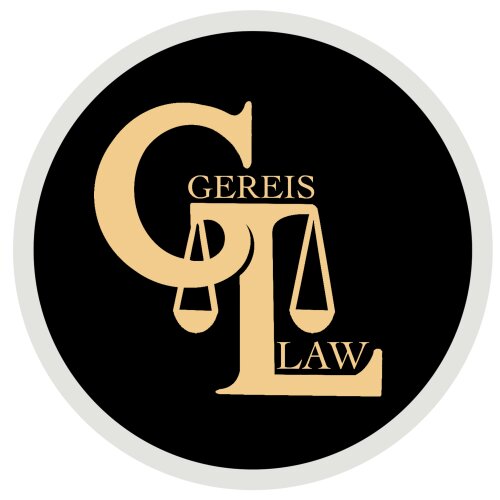Best Lawsuits & Disputes Lawyers in Vermont
Share your needs with us, get contacted by law firms.
Free. Takes 2 min.
Or refine your search by selecting a city:
List of the best lawyers in Vermont, United States
About Lawsuits & Disputes Law in Vermont, United States
Lawsuits and dispute resolution are essential components of the Vermont legal system. They provide a structured process for individuals and organizations to resolve disagreements that cannot be settled privately. In Vermont, disputes can arise in many contexts, including contracts, property, personal injury, employment, business, and family matters. The court system, along with other alternative dispute resolution mechanisms like mediation and arbitration, offers formal pathways to address grievances and reach fair solutions.
Why You May Need a Lawyer
People often seek legal assistance for lawsuits and disputes in Vermont for several reasons. You may need a lawyer if you are being sued or wish to file a lawsuit against another party. Legal help is also crucial when dealing with complex contracts, negotiating settlements, or navigating small claims court. Matters involving property boundaries, landlord-tenant disputes, business disagreements, employment issues, or personal injury claims often require professional guidance. Lawyers can help you understand your rights, build a strong case, negotiate with the other side, and ensure that you comply with Vermont’s legal procedures.
Local Laws Overview
Vermont’s legal system for handling lawsuits and disputes is governed by state laws and local court rules. The Vermont Superior Court is the primary trial court for civil lawsuits, while smaller claims (generally under 5,000 dollars) are heard in Small Claims Court. Vermont has specific rules on starting a lawsuit, service of process, timelines for filing, and discovery procedures. Mediation is encouraged in many cases, especially family and property disputes. Vermont’s statutes of limitations set deadlines for filing different types of lawsuits, and not adhering to these can result in lost rights. Additionally, Vermont is known for its consumer protection statutes, strong landlord-tenant protections, and specific processes for eviction and employment disputes.
Frequently Asked Questions
What kinds of cases are handled as lawsuits and disputes in Vermont?
Common cases include contract disagreements, real estate matters, landlord-tenant issues, personal injury, employment disputes, business conflicts, and family law matters.
How do I start a lawsuit in Vermont?
To start a lawsuit, you must file a complaint with the appropriate court, pay the filing fee, and ensure the opposing party is properly notified. Specific rules apply depending on the type and value of the case.
What is Small Claims Court and when should I use it?
Small Claims Court is designed for resolving minor monetary disputes quickly and efficiently. In Vermont, it generally handles cases involving amounts up to 5,000 dollars. The process is less formal, and you may not need a lawyer.
What are the deadlines for filing a lawsuit in Vermont?
Deadlines vary depending on the type of claim. For example, personal injury claims usually have a three-year statute of limitations. Contract disputes may have different deadlines. It’s important to check Vermont’s statutes or consult a lawyer.
Do I have to go to court to resolve a dispute?
Not always. Vermont encourages alternative dispute resolution methods like mediation and arbitration. These can save time and money and often lead to mutually acceptable settlements.
What happens if I ignore a lawsuit filed against me?
If you ignore a lawsuit, the court may issue a default judgment against you, meaning the other party automatically wins. Always respond to court papers promptly.
Can I recover attorney’s fees if I win my case?
Generally, each party pays their own legal fees, unless a contract says otherwise or a statute allows fee-shifting. Some consumer protection and employment statutes in Vermont allow the winning party to recover fees.
What should I bring to court or mediation?
Bring all relevant documents, contracts, photos, receipts, and any communication related to the dispute. Having detailed evidence increases your chances of a favorable result.
How long does a lawsuit take in Vermont?
The timeline varies widely based on the complexity of the case and the court’s schedule. Small claims may resolve in weeks or months, while more complex lawsuits could take a year or more.
Where can I get free or low-cost legal help in Vermont?
Organizations like Vermont Legal Aid and local bar associations offer free or sliding-scale legal services for those who qualify. The court’s self-help centers also provide resources and forms.
Additional Resources
- Vermont Judiciary: The official resource for court locations, forms, and procedural guidance. - Vermont Legal Aid: Provides free legal representation to eligible individuals in civil matters. - Vermont Bar Association: Offers lawyer referral services and educational material. - Community Justice Centers: Support alternative dispute resolution and mediation services. - Vermont Department of Housing and Community Development: Resources on landlord-tenant disputes. - Vermont Human Rights Commission: Assistance with discrimination and civil rights cases. - State of Vermont Consumer Assistance Program: Help for consumers in disputes with businesses.
Next Steps
If you find yourself involved in a lawsuit or a significant dispute in Vermont, start by gathering all relevant documents, contracts, and correspondence. Decide if your case qualifies for Small Claims Court or requires a different approach. Consider using mediation or contacting a local legal aid organization for guidance. If the dispute is complex or significant, consult a qualified Vermont attorney who specializes in the relevant area of law. Prepare questions to ask your lawyer and keep records of all communications. Timely action is crucial, so do not delay seeking assistance to protect your legal rights.
Lawzana helps you find the best lawyers and law firms in Vermont through a curated and pre-screened list of qualified legal professionals. Our platform offers rankings and detailed profiles of attorneys and law firms, allowing you to compare based on practice areas, including Lawsuits & Disputes, experience, and client feedback.
Each profile includes a description of the firm's areas of practice, client reviews, team members and partners, year of establishment, spoken languages, office locations, contact information, social media presence, and any published articles or resources. Most firms on our platform speak English and are experienced in both local and international legal matters.
Get a quote from top-rated law firms in Vermont, United States — quickly, securely, and without unnecessary hassle.
Disclaimer:
The information provided on this page is for general informational purposes only and does not constitute legal advice. While we strive to ensure the accuracy and relevance of the content, legal information may change over time, and interpretations of the law can vary. You should always consult with a qualified legal professional for advice specific to your situation.
We disclaim all liability for actions taken or not taken based on the content of this page. If you believe any information is incorrect or outdated, please contact us, and we will review and update it where appropriate.
Browse lawsuits & disputes law firms by service in Vermont, United States
Vermont, United States Attorneys in related practice areas.
Browse lawsuits & disputes law firms by city in Vermont
Refine your search by selecting a city.














